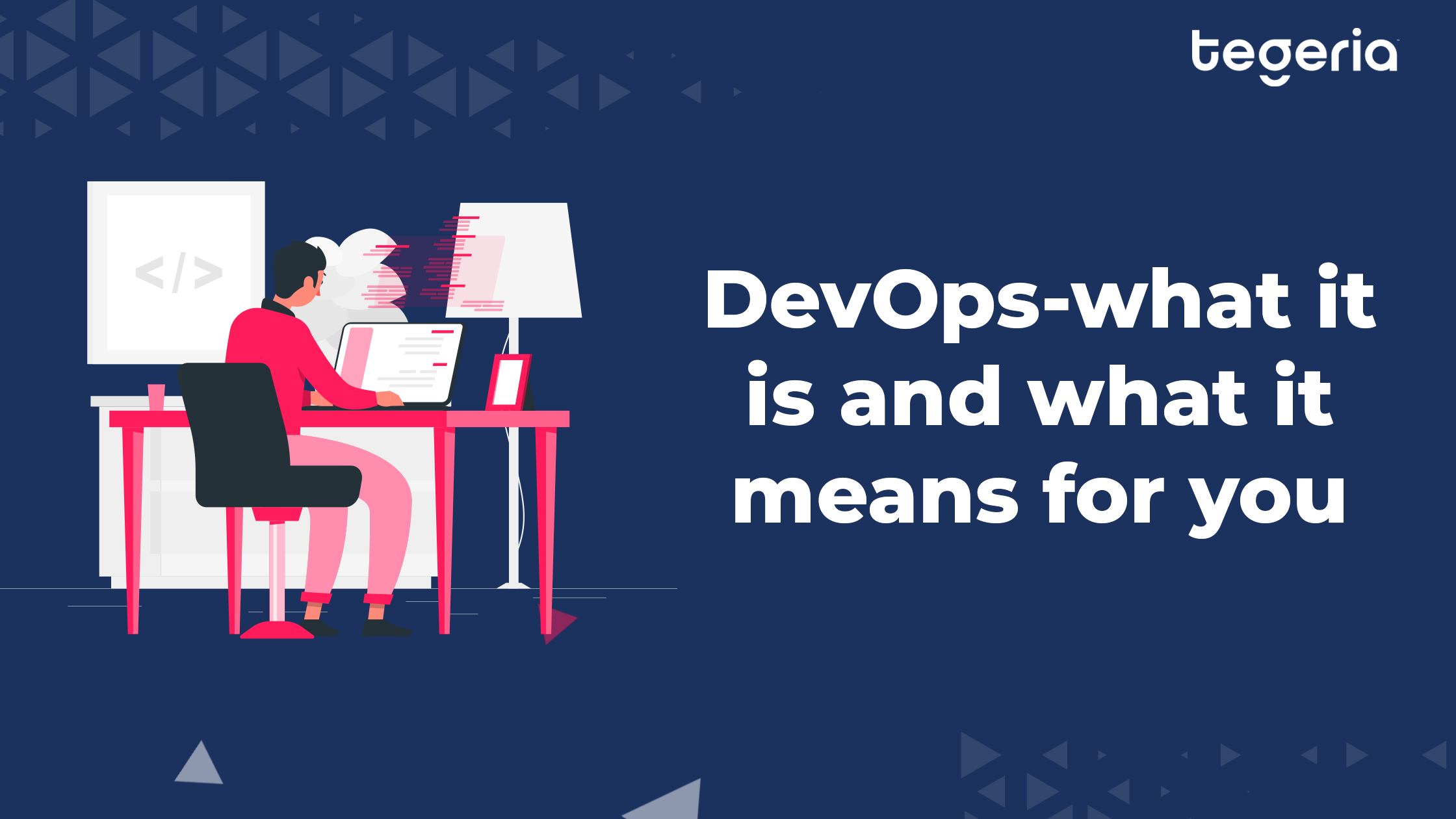DevOps-what it is and what it means for you
Those that work in the IT business have probably come across the word “DevOps” from time to time- but what does it mean?
DevOps (a portmanteau of “development” and “operations”) is a software development methodology that brings together software development and IT operations with the goal of shortening the systems life cycle. It also aims to deliver features, fixes, and updates regularly, whilst remaining in line with the business objectives. The typical example of DevOps functions includes event monitoring and automation, as well as other key steps of the software building process.
The overall end goal of the DevOps process is to create an agile relationship between development and IT ops and to encourage better communication and collaboration between the two business elements.
Period of change
Over the last couple of years, IT has undergone a huge period of change as traditional ways of doing things, and now more than ever, the need for speed has become a necessity as businesses pursue digital transformation strategies to stay competitive. This, in turn has resulted in the need and desire for DevOps.
The continued shift towards the cloud and DevOps is driven by the need for agility. Businesses of all size want to be able to deliver faster functionality to ensure they are up to date at all times and staying one step ahead of the competition. Look at mobile apps for example- we are so used to apps that update on a daily basis with new functions and features showing up- the pressure is on to keep this innovation fluid.
“But what does this mean?
It means that businesses need an infrastructure that allows them to update applications and code on a daily or weekly basis, rather than once or twice a year. Digital transformation strategies are constantly evolving because technology as a whole is changing all the time- businesses need to be able to respond quickly. DevOps is essential for real digital transformation and quick delivery of agile solutions that the market wants.”
How did DevOps come about?
DevOps was first conceived by a US-based engineer, statistician, and management consultant called W.Edwards Deming who created a set of 14 key principles that was later known as ‘Total Quality Management’. These principles are directly credit with inspiring DevOps, especially the following three:
- Cease dependence on inspection to achieve quality. Eliminate the need for inspection on a mass basis by building quality into the product in the first place.
- Improve constantly and forever the system of production and service, to improve quality and productivity, and thus constantly decrease costs.
- Break down barriers between departments. People in research, design, sales, and production must work as a team, to foresee problems of production and in use that may be encountered with the product or service
Intrinsic parts of DevOps include the continual delivery of microservices and software components, rather than episodic releases of updates to applications. Cultural factors of the process include the implementation of lean management process to enable teams of developers to deliver better and more streamlined IT performance.
DevOps vs Agile
If you hear the word “DevOps” it is expected that the word “agile” is not far behind. Whilst both share the same goals of improved IT performance via iterative and quick development of software components, DevOps also factors in the deployment phase with the “Ops” team in constant communication with the “Dev” collaborators. As such, many consider DevOps to be an evolution and improvement on Agile methodologies.
The Future
As we move into 2019, we can expect to see DevOps focussing more on integration between services as the traditional on-premises database infrastructure model continues to change. We have already seen an accelerated migration towards infrastructure as a service (IaaS), and database as a service (DBaas) and with an increased dominance of AWS, Google Cloud, and Kubernetes, this trend is set to continue.
In addition to this, automation will remain key, experimentation with continuous delivery approaches will expand, and a deepened focus on functions will begin to emerge. We an also expect to see DevOps play a pivotal role as an enabler of seamless security integration, as well as DevOps cementing its place in IT and software workplaces.
Whilst a 2017 survey by cloud sandbox software provider Quali, noted that some of the main barriers to DevOps in enterprises included cultural factors, the lack of test automation facilities, and integrating legacy on-premise applications into a hybrid cloud environment, it is likely that many of these will have been overcome by the end of this year.
To find out more about DevOps and what they can do for you, get in touch with a member of our team.




